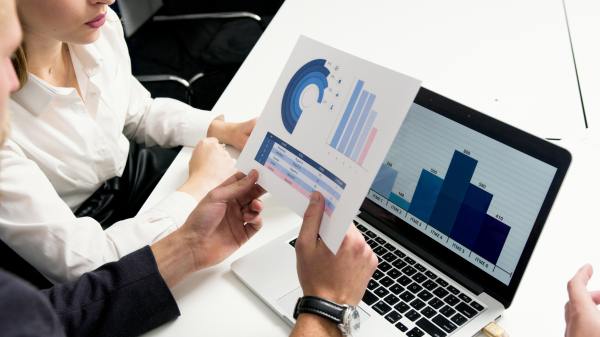Artificial intelligence applications are frequent and useful both in the domestic and private sphere and in the workplace, reaching more and more sectors, from virtual assistants to cybersecurity, robotics or medicine. Some of its applications are already more than 50 years old, however, as technology advances, it is expected to have a greater impact on society.
What other applications does artificial intelligence have?
Artificial intelligence, AI, is a field of computer science that seeks to create systems and programmes capable of endowing a machine with human abilities such as learning or the ability to plan actions, mimicking human capabilities. It therefore has a wide range of applications in various fields.
These are some examples of how, day by day, this technology makes life easier for millions of users.
- Virtual assistants. Siri, Alexa, Cortana or Google Assistant are those tools that make life easier for thousands of people at home. Based on machine learning algorithms, they understand and respond to users’ questions and commands. They are being integrated into a wide range of devices, from smartphones and smart speakers to TVs and cars, making them accessible and usable in different contexts. They play a leading role in the Internet of Things or IoT.
- Industrial automation and robotics. Used to convert certain industrial processes into automated activities, thereby improving manufacturing efficiency. Robots and autonomous systems use AI algorithms to execute complex tasks efficiently and safely. They are used, for example, in manufacturing and assembly tasks. On the other hand, automation is also common in preventive maintenance of plant and machinery, process control, logistics and inventory management.
- Data analysis and prediction. It allows large amounts of data to be analysed and hidden patterns to be found. Therefore, it is applied in fields such as financial analysis, marketing, medicine and scientific research. The reason is that it is very useful for predicting behaviour and trends. Thus, in marketing it helps in customer segmentation, including sentiment analysis to assess user experience. For its part, its use in the financial world, among other things, contributes to fraud detection.
- Autonomous driving. The combination of sensors, machine learning algorithms and decision-making systems enables autonomous vehicles to operate independently. This means that there is no direct human intervention, depending on the degree of autonomy of the car. Key aspects include perception of the environment, road safety, vehicle control, efficiency and comfort.
- Medicine and health. It is very useful in medical diagnosis, research on new drugs, assistance in surgeries, patient monitoring and medical record management. It also provides a more personalised approach to patient treatment. In combination with surgical robotics, they assist surgeons and minimise risks and potential complications.
- Financial services. In addition to its ability to detect fraud and its role in the fight against fraud, it has a wide range of applications. It is used to analyse large volumes of financial data, such as transactions, stock prices and macroeconomic information. Its algorithms identify patterns, trends and relationships hidden in the data, which helps in investment decision-making, risk prediction and portfolio optimisation. It is also applied to provide automated financial advice, through a robo-advisor (or automated manager), among many other things.
- Precision agriculture. Optimises agricultural production through the analysis of climate data, crop monitoring, efficient irrigation water management and early detection of plant diseases. In this way, measures against pests can be implemented before it is too late, for example.
- Energy and sustainability. In combination with other technologies such as Big Data, it helps to predict electricity demand patterns, improve energy efficiency and facilitate the transition to renewable energy sources.
- Machine translation. Allows the translation of text or voice from one language to another automatically and quickly. It is used in online translators, mobile applications, content translation or in global human-to-human communication. Although its quality and accuracy have improved, nuances, localisms and cultural context require the concurrence of human translators.
- Games and entertainment. AI is also used to create characters in video games and virtual reality environments with realistic behaviour. And, without leaving the realm of entertainment, it can analyse the behaviour of enemies and allies to anticipate their decisions. On the other hand, it can be very valuable as a tool for generating music, sound or as an assistant in any facet of art.
Artificial intelligence applications have evolved over the years and continue to grow to provide a better quality of life both personally and professionally.











